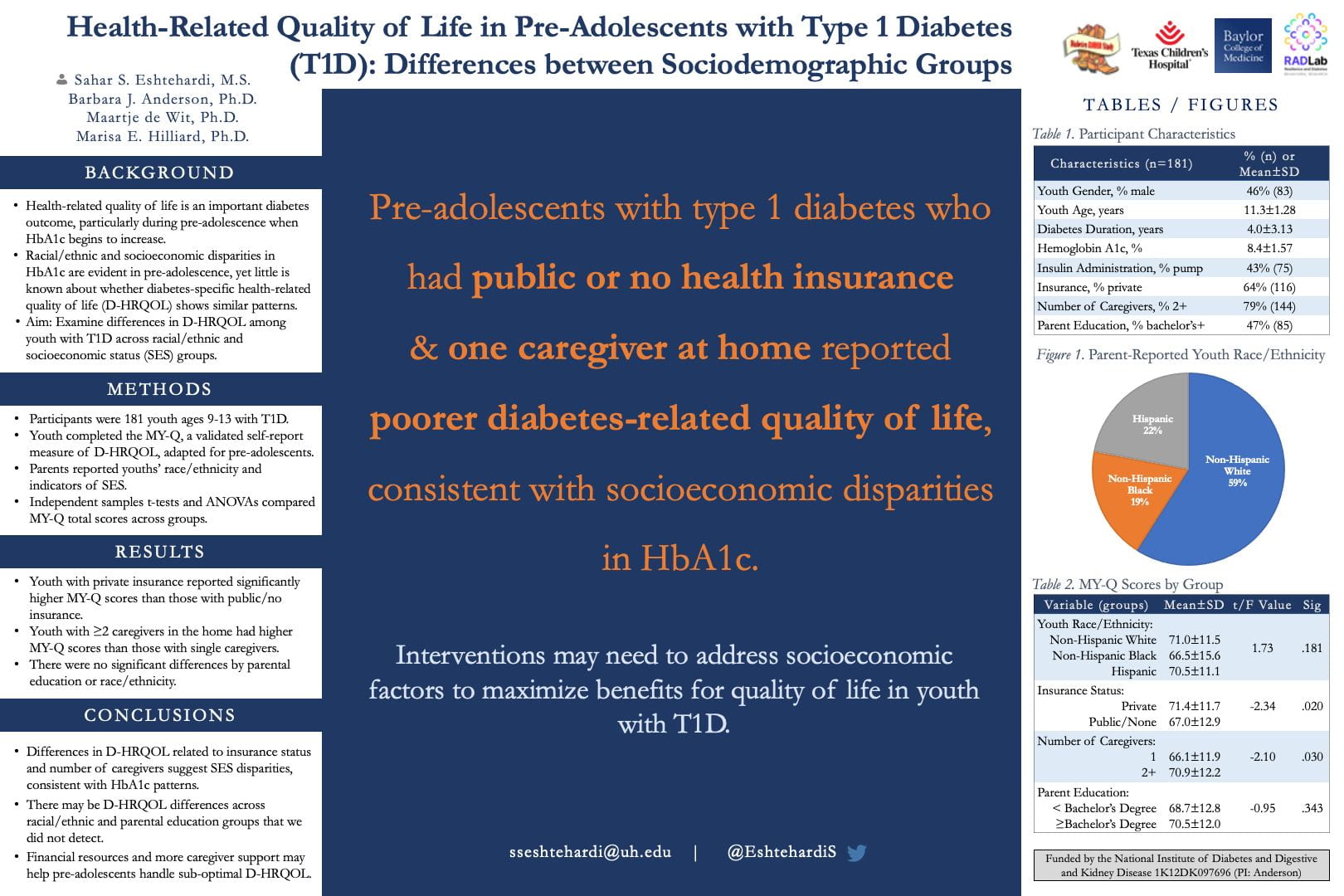Scientific Abstract
Background: Health-related quality of life measurement is frequency reported as an important health outcome, particularly during critical developmental periods such as pre-adolescence where disease management is often shifted from the caregiver to the child. Despite this, little is known about whether youth from different sociodemographic groups report similar diabetes-specific quality of life (D-QOL). This study examines differences in self-reported D-QOL across racial/ethnic groups and socioeconomic statuses (SES) in pre-adolescents with T1D. We hypothesize that youth of racial/ethnic minorities and lower SES would report poorer D-QOL.
Methods: Participants were 181 children ages 9-13 with T1D (M age=11.3+1.28, 46% male, 59% Non-Hispanic White, M A1c=8.4%+1.57). Youth completed the MY-Q, a validated self-report measure of D-QOL. Proxy reports of SES included: health insurance status, number of caregivers at home, and highest parental education, and parents reported children’s race/ethnicity. Independent samples t-tests and ANOVAs compared MY-Q total scores across sociodemographic groups.
Results: Youth with private insurance (M=71.4, SD=11.7) reported higher D-QOL than those with public/no insurance (M=67.0, SD=12.9), t(179)= -2.34, p=0.02. Youth with ≥2 caregivers in the home (M=70.9, SD=12.2) had higher D-QOL than those with single parents (M=66.1, SD=11.9), t(179)= -2.10 , p=0.03. There were no differences by parental education or race/ethnicity.
Conclusions: D-QOL differed across sociodemographic variables, highlighting potential disparities experienced by families of lower SES. Contrary to hypotheses, lack of differences by race/ethnicity and parental education may suggest that increased financial and caregiver support serve as a protective factor for sub-optimal D-QOL, particularly in pre-adolescents where increased support may aid in less transition related distress. Better understanding potential D-QOL disparities across specific SES indices may help diabetes psychologist adapt known D-QOL interventions to optimize health outcomes, especially during vulnerable developmental periods.
Search posters

